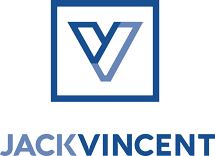
“Now that you mention it…”
“… our best deals usually happen when we don’t get past our fourth, seventh, or whatever slide, when we meet with a client for the first time.”
These were the words of a business development exec halfway through the two-day sales workshop. He had joined this financial services firm less than a year earlier.
A six-year veteran of the firm agreed. “Actually, you’re right. When the conversation moves away from our funds and asset class, and toward the prospect’s challenges and opportunities, that’s usually when we get the most traction with a prospect.”
This was a tipping point for this high-powered commercial team.
Until this very moment, they had adhered to the industry norm.
Go in an present long pitch decks. If the prospect raises a question, answer it and then refocus on the pitch deck.
After all, they put a lot of preparation into these pitches, right!
What they were now beginning to realize was that, although their prospects had expectations of a long presentation, they actually valued robust discussions more highly, especially if, early on, they’re about the prospect’s challenges and opportunities.
The C in S.C.O.R.E© Selling Method.
Challenges.
This was part of the training content, but it wasn’t force-fed to the participants, either.
The team came to this conclusion itself… at least that’s what they thought.
It was obvious from the assessment that they needed to break this modus operandi.
But instead of just telling and showing them, I guided them here.
The team came to the conclusion itself and were, therefore, more committed to adopting it and integrating it to the selling system that, following the workshop, we branded as theirs.
It was essentially the S.C.O.R.E© Selling Method, re-branded.
Deals within this firm are typically in the € 10 to 40 million range. To change the sales modus operandi is not easy.
But they would benefit tremendously if they first broke their established beliefs, and then trained for it.
Within six months, each and every salesperson (heresy! the financial world shuns the word “sales”), every business development executive, claimed that they had concluded at least one deal in which a tool from the training and coaching had made the difference.
Most of them said they were using several newly acquired skills regularly, and it was having a positive impact on their biz dev.
The moral of the story: the sales training content needs to be good, but even then, facilitation is key to building the participants’ commitment to using it..
Ironically, the skilled facilitator loves it when the participants feel that they’ve generated the findings from within.
In fact, that’s exactly what the skilled facilitator does.
Let’s discuss how we can improve your teams skills, while maximizing their commitment to implementing it immediately.
